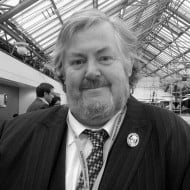Tomorrow Scotland votes on the biggest decision our islands have faced in generations – whether they should gain independence. However, less than 10% of the population of the United Kingdom will get a say in the fate of the Union.
I do think it is right that Scots are able to vote on whether they become an independent nation. The problem lies in that if they do vote in favour of leaving the United Kingdom, it will have a serious impact on the remaining countries of the United Kingdom. If the media are to be believed, there are no contingency plans in place in the event of a ‘Yes’ vote. The impact could well be chaos.
However, what should happen in if Scotland decides to stay? Can everything stay as it was? The ‘Better Together’ Campaign has already announced new powers will be given to Holyrood Parliament if a ‘No’ verdict is reached. But what about the rest of the United Kingdom?
The Welsh Assembly is likely to get an increase in the powers it currently has, similar to Scotland. These are likely to include measures to vary income tax and devolve control of policing, which would be in addition to health and education services currently controlled from The Welsh Assembly.
The big question is what about more powers for England? This issue has been running since Scottish devolution in 1997, with Scottish MPs still being allowed to vote on matters that did not affect Scotland. This so-callled ‘West Lothian’ Question is yet to be answered, but it is likely that it will have to be resolved sooner rather than later.
One answer is to have a series of Regional Assemblies with certain powers transferred from Westminster. Personally, I see difficulties in the working of this, especially if NHS and education powers would be transferred, creating a difference across the UK in treatment and educational standards. It has been suggested that areas with a unique and cultural identity such as Cornwall or Yorkshire might have these Regional Assemblies, but that still leaves most of England with mixed messages.
Another option would be the establishment of an English Parliament. Giving all the four devolved parliaments equal powers and responsibilities, this would see a reduction in the role of Westminster and the creation of a federal system more akin to that in Germany or the United States.
The most likely solution would be a reorganisation of business at Westminster, allowing time in the House for England only or English-Welsh only matters, with Scottish MPs excluded from those sessions. It is not the perfect solution, especially if the minister in charge of the department is Scottish.
I personally hope that Scotland stays within the UK family. As Aesop points out we are a stronger nation together, and despite our differences, we have shown through our sporting endeavours, we are all too alike to be apart. However, one thing is certain: whichever way the vote goes on Thursday, we will see changes in our great country.





